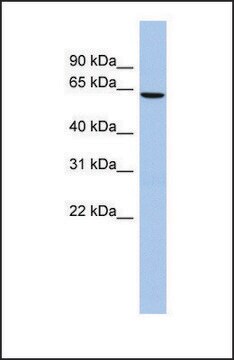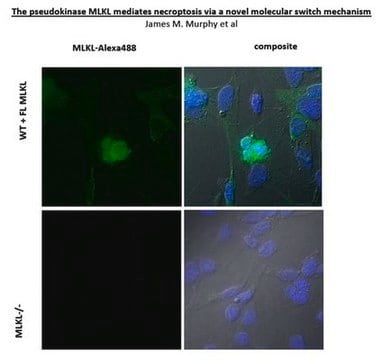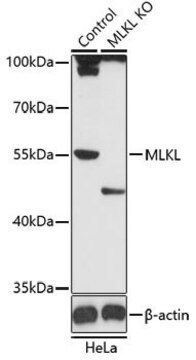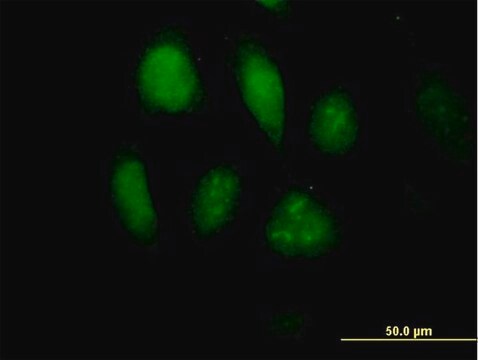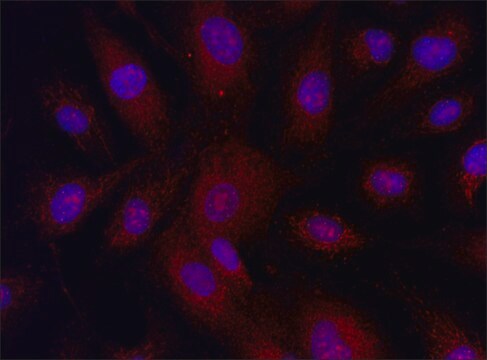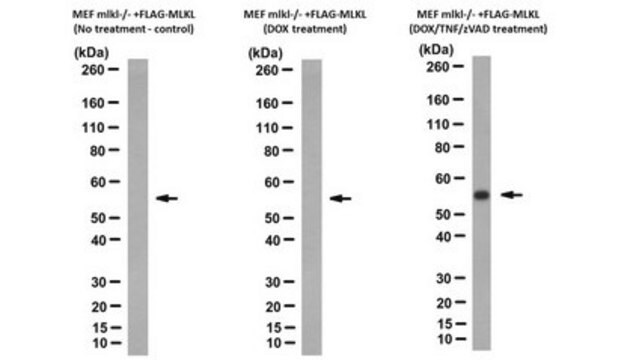ABC2036
Anti-MLKL
from rabbit
Synonym(s):
Mixed lineage kinase domain-like protein, hMLKL
About This Item
Recommended Products
biological source
rabbit
Quality Level
antibody form
affinity isolated antibody
antibody product type
primary antibodies
clone
polyclonal
species reactivity
human
technique(s)
immunohistochemistry: suitable (paraffin)
western blot: suitable
isotype
IgG
NCBI accession no.
UniProt accession no.
shipped in
ambient
target post-translational modification
unmodified
Gene Information
human ... MLKL(197259)
General description
Specificity
Immunogen
Application
Apoptosis & Cancer
Immunohistochemistry Analysis: A 1:250 dilution from a representative lot detected MLKL in human tonsil and human squamous cell carcinoma tissue sections.
Quality
Western Blotting Analysis: A 1:500 dilution of this antibody detected MLKL in 10 µg of HT-29 cell lysate.
Target description
Physical form
Storage and Stability
Other Notes
Disclaimer
Not finding the right product?
Try our Product Selector Tool.
Storage Class Code
12 - Non Combustible Liquids
WGK
WGK 1
Certificates of Analysis (COA)
Search for Certificates of Analysis (COA) by entering the products Lot/Batch Number. Lot and Batch Numbers can be found on a product’s label following the words ‘Lot’ or ‘Batch’.
Already Own This Product?
Find documentation for the products that you have recently purchased in the Document Library.
Our team of scientists has experience in all areas of research including Life Science, Material Science, Chemical Synthesis, Chromatography, Analytical and many others.
Contact Technical Service